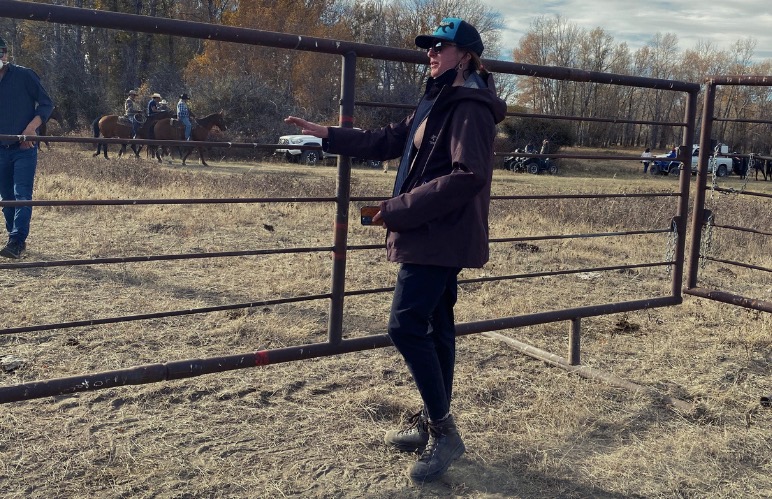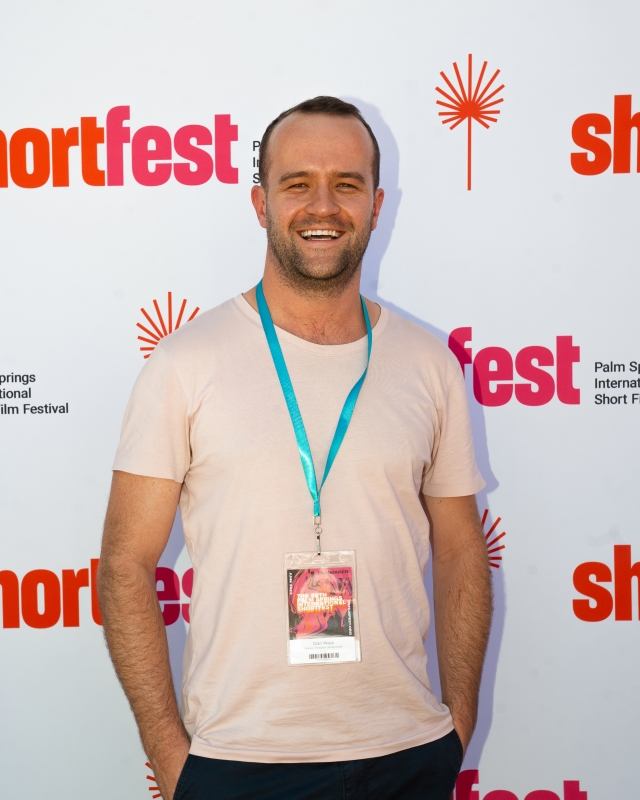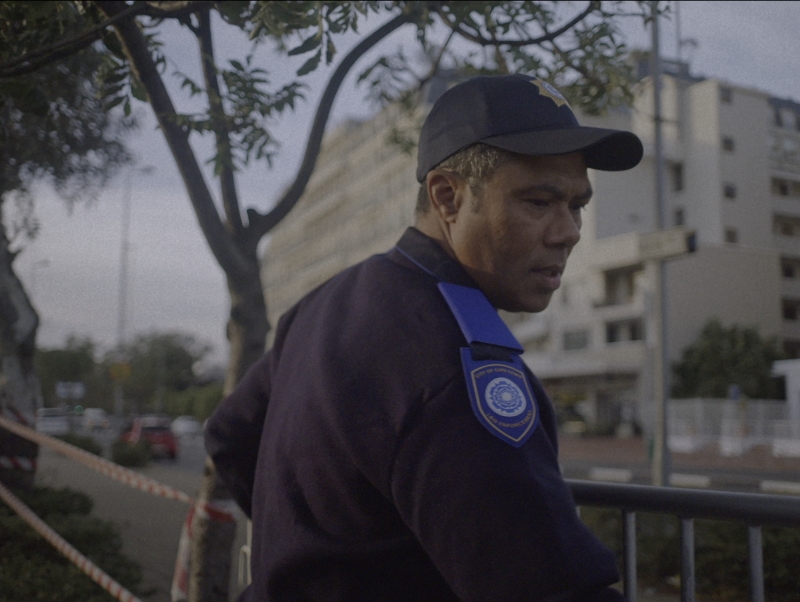|
|
||
|
Pro Tools
FILMFESTIVALS | 24/7 world wide coverageWelcome ! Enjoy the best of both worlds: Film & Festival News, exploring the best of the film festivals community. Launched in 1995, relentlessly connecting films to festivals, documenting and promoting festivals worldwide. Working on an upgrade soon. For collaboration, editorial contributions, or publicity, please send us an email here. User login |
LOVERBOY, an interview with Daniel Mitulescu
LOVERBOY (2011) is the newest film by the Mitulescu brothers, Catalin and Daniel. LOVERBOY opened at Cannes 2011 in ‘Un Certain Regard’ and screened in competition in Sarajevo at the 17th Sarajevo Film Festival where the stunning lead actress, Ada Condeescu, won a merited Best Actress award for her magnetic and captivating performance in the film as a her loverboy’s greatest conquest. LOVERBOY examines the nature of love and questions the psyche of a lover in not only modern day Romania but in the world at large. When asked ‘what is the meaning of love?’ to the lead actor George Pistereanu, he replied, “life without love is like being in a desert without water”. Of course not everyone has such romantic ideas about love. What are your views of love? Is it strong enough to conquer all? Well, whatever your opinions on love and the nature of love are, they will certainly be challenged after seeing LOVERBOY. I interviewed the film’s producer Daniel Mitulescu in Sarajevo at the Hotel Europe. We spoke about his career as producer, life, love, and of course, LOVERBOY.
ME: So, this is your second film with your brother, correct? DANIEL: Yes, this is his second feature film. ME: And you produced both his films? DANIEL: Yes, but this is my third film to produce. My first film was THE WAY I SPENT THE END OF THE WORLD (2006), which was in Cannes in 2006. It was in ‘Un Certain Regard’ category. And the second film I produced was IF I WANT TO WHISTLE, I WHISTLE (2010), which was in Berlin competition and the third one is LOVERBOY (2011). ME: And with your previous film IF I WANT TO WHISTLE, it opened in Berlin and then went to many festivals this past year. DANIEL: Yes. In Berlin it was in competition and won two jury awards including the Silver Bear and the Alfred Bauer Award. ME: So, what made you want to become a producer? Did you always want to do it or did you fall into it? DANIEL: Initially, I started sociology. I studied two years in Bucharest and then two years in Paris in Sorbonne Social Anthropology. Then I moved to Spain in Madrid and I did an MBA in Audio Visual. I worked 3-4 months in TV in the Spanish film department so I began to reading scripts, projects, evaluating. Then it was very useful and then I came back to Romania and I worked on TRAFFIC (2004), the short film of my brother as a production assistant and then a feature film that premiered here in Sarajevo in fact. Then I produced THE WAY I SPENT THE END OF THE WORLD. ME: So, when your brother got into production you joined him? DANIEL: Yeah, we discussed. He started first while I was in Paris we have discussed about films and about producing. And then I decided to do the school in Spain, the MBA. And since I was little I liked to see films so when I went in Paris doing anthropology what I liked the best in life, what makes me happy and I thought, ‘yeah, I want to do something related to film’. And see a lot of films. ME: So, how did you begin to produce your first film? How did you get started? DANIEL: That was a huge production. I was the producer together with my brother and it was a very difficult production. It was 1.5m euros budget with French co-producer. ME: That was a big film for Romania right? DANIEL: Yeah. And big for a first feature film, first time director. ME: That was your brother Catalin’s first film. You guys are really a team! DANIEL: Yeah, and it was with a French co-production with Eurimage and we had two executive producers including Wim Wenders on that film. So, it was fifty percent Romanian production. ME: So, there’s a good film fund in Romania? DANIEL: Yeah, but now I heard some news that they are cutting the money so we are like worried a little bit. ME: Big surprise eh? That’s the problem everywhere right now. So, what are the latest productions after your first film? Are they bigger or smaller? DANIEL: The latest films are smaller. IF I WANT TO WHISTLE was 900,000euro and LOVERBOY was 1.2million euro. And I have two other feature film projects that I am working on. ME: And will you work on projects outside of Romania or will you mainly continue to work with your brother? DANIEL: Well, IF I WANT TO WHISTLE was directed by Florin Serban and also now I am working on a movie with a Spanish director so I don’t only work with my brother because my brother cannot do films every year. So I have to have my own system. It’s normal when I produce I don’t only work with my brother because the idea is to find other directors to produce as well but of course following my brother too because I like his cinema. [then it was pouring rain outside]It’s a disaster outside! ME: Crazy summer weather! So, in LOVERBOY it’s the same actors who are in IF I WANT TO WHISTLE. How hard was it to find them? DANIEL: Well, it was very hard to find George. He was the leading role and we spent like seven months in casting, hundreds and hundreds of teenagers that we saw. But George was very good from the beginning but he was still in testing for two months after that we said, ‘okay, you are the leading role’. Without George I don’t know if we would have done the film because it’s a very important role and very difficult and for LOVERBOY, for Ada, it was a little bit easier. She was studying in university and we have chosen her. But about Catalin he was writing the script and we thought about George. And afterwards, he had also decided for Ada. ME: So, can you tell us a bit about the latest film LOVERBOY? What does it mean? Is he like a contemporary Casanova? DANIEL: LOVERBOY is about a 20 year-old boy living in a town near the Danube that makes the girls fall in love with him. In fact, ‘Loverboy’ is a word used by the police that investigate trafficking and they call this kind of trafficking using the method of making women fall in love with him. ME: I’ve never heard of this kind of trafficking. What does being a ‘loveboy’ have to do with trafficking? DANIEL: It has to do because the method of forcing girls into prostitution is less and less because you know with police investigating the law. You know? So, let’s say it’s complicated and hard to catch these guys because if the girl is not innocent then the police cannot do anything. ME: So, the traffickers don’t threaten the girls? DANIEL: They don’t threaten them. The girls get stuck because they fall in love with the boy so they don’t go to the police to tell them, ‘my lover is…’ you know. That’s the idea. So, you are in love with a guy and you will make everything for that guy because you are in love with him, you know. And the guys is saying, ‘okay, we need some money to build our future’ you know. ‘So, you prostitute yourself and you sleep with these guys and make money and make money for us’ you know? And the Loverboy can have one girl, two girls, three girls, so that’s the idea. And Loverboys are not only in Romania they are everywhere. ME: Wow! The trafficking that most people are familiar with is the one where the girl and her family are threatened and forced into prostitution by force. DANIEL: Of course. But this is the new method. But this is the most perverse way of prostituting girls and the film LOVERBOY shows it, how you can make a girl fall in love with you. And it’s very interesting. ME: This is a new method, I suppose, for an age-old form of domination over women. So, it’s new and yet enduring. I mean even Casanova (and all ‘Loverboys’ old and new) seduced his many lovers into a form of prostitution as well. DANIEL: Of course. In fact, you can say that behind every woman on the street in Italy and Spain is a love affair in a way, a first love. And the problem is that most of them, the victim of Loverboys are underage and that’s a problem because psychologically after six months doing prostitution they cannot recover psychologically. And in a way I don’t think LOVERBOY is a social film because it’s about investigating love and what’s important in a relationship. Is love enough to have a relationship? So, I would say there are different levels in the film and that makes the film in good opinion with the audience. And it’s also about modern guys in Romania and how they have fun and parties with the girls on the seaside and it’s sexual. ME: So, being that’s it’s primarily about the psychology of love it’s a universal story but a little social just because it captures modern day Romania. DANIEL: Exactly. ME: So, can you tell us a bit about the Ada’s role? Having seen her in IF I WANT TO WHISTLE, she seems like a strong female character. So, how does such a strong girl find herself in such a situation? DANIEL: There are different girls in the film. You have to see the film to know how it develops. ME: And the film had its debut in Cannes? DANIEL: Yes, it opened in Cannes in ‘Un Certain Regard’. ME: Can you just give readers a word on what to expect? DANIEL: They can expect a film that touches the relation between a 20 year-old boy and a 16 year-old girl. It’s a love affair, in a way, it’s a strange love affair. ME: During the press conference here in Sarajevo for the film, the interviewer on panel had asked each of the cast about their opinion about love and the meaning of it. Do you care to give your opinion about love in general and love in the world today? DANIEL: I think that the family has a strong role in society and now there are more and more questions. Even the idea of marriage, there are a lot of people who don’t marry and have a common relation. I think it’s also about men and I think the role of men has diminished. Because it’s less and less a commitment on their side, decisions, regarding women. And I think it’s very important for a man to take decisions in life, not only that it’s necessary to decide to marry a woman but has to make a decision. And more and more I see that women take decisions for men because men are not the same role as before. There are two things…One is that women put more accent on career. That is very important. And the second is that women also have to take decisions for men. I wont say that it’s a problem, I say it’s a reality. And this makes society turn a different way. I don’t know why this is happening but I observe this. If you see a couple, the woman makes more every day decisions. Women know more how to deal with a lot of things at the same time where men are more focused. But more than that, maybe there are fewer and fewer men that have passed through steps in life to become mature and they tend to be kids for always. Not like in other societies in the past there were steps, wars, pastimes where men were forced to overcome situations. But the comfort of the new society don’t determine men to take decisions and this is connected also to the fact that the family tend to keep the kids as long as possible. ME: Yes, of course. There used to be culture, traditions, and rites of passage. There were certain psychological events that would sort of mark in the psyche for the next stage in life. And those are disappearing everywhere. So, people are staying underdeveloped in many ways, like adolescents their whole life. DANIEL: Yeah. And even in the army service. The army in Romania had the role of bringing young boys from remote villages in Romania and also from Bucharest together and being in difficult situations. So this is socialization because the boys know each other and they open themselves and they also overcome some fears. Like in the tribes when you send a 17 year-old boy into the forest for two weeks and he needs to control himself to become a man. ME: Or the circumcision, something that marks the psyche for the stages of growth into the next stage of responsibility and transformation. But today there is less and less rites performed and almost no collective myths apply anymore. DANIEL: Exactly. No values in a way. There are different values today, not the same values. The values have changed. ME: With all of these changes of values and ideas, do you think there will be more of a need to go back to the simple human needs, going back to the family, going back to collective local myths, etc.? And thereafter, new ideas of love and family and social roles? DANIEL: I think there is a connection where a person is born and it’s important to understand the place where you are living. I was talking today to a director friend of mine about how Romanians are always complaining and they are not satisfied with the place they are living in. And I think that is reflected in other things, in the economy and politics and everything. I think that’s very important not only to accept the place you are in but if you don’t like it, change it. Moving to another country or another place is not the solution. You are escaping of what? Finally you have to understand. ME: And the problem with that is that for people to make a change they have to look at themselves. And that’s the hardest problem, to stop looking outwards and to look inwards. That’s the hardest thing to do. DANIEL: But it’s what we should do. And if we know at least that, that’s good. ME: Great final words, Daniel. I think you can say that LOVERBOY indeed confronts these problems. DANIEL: What I like in the film is this need to overcome your condition, or at least to try it. This is very important not to be fatalistic. ME: And do the characters in LOVERBOY take that journey? DANIEL: They try. They try. ME: Awesome, Daniel. Thank you! Everyone, go see LOVERBOY. It’s raw and visceral, honest and haunting; an unforgettable mirror to the human psyche and the nature of love.
Interview by Vanessa McMahon, transcribed on August 07, 2011.
photos by Vanessa McMahon from SFF 2011 Daniel Mitulescu, Ada Condeescu, George Pistereanu, Catalin Mitulescu Ada Condeescu winning Best Actress on closing night. 10.08.2011 | Vanessa McMahon's blog Cat. : actor actress Ada Condeescu an interview with Daniel Mitulescu army army in Romania Berlin Bucharest Cannes Cannes Catalin Catalin Mitulescu Ada co-producer Daniel Mitulescu Director Employment Relation Entertainment Entertainment Europe executive Florin Serban George Pistereanu Hotel Europe Italy LOVERBOY Loverboy Madrid Next Magazine Paris Person Career Person Location Producer Production Assistant Quotation Romania SARAJEVO Say It Sinners Never Sleep Spain the 17th Sarajevo Film Festival Vanessa McMahon Interviews
|
LinksThe Bulletin Board > The Bulletin Board Blog Following News Interview with IFTA Chairman (AFM)
Interview with Cannes Marche du Film Director
Filmfestivals.com dailies live coverage from > Live from India
Useful links for the indies: > Big files transfer
+ SUBSCRIBE to the weekly Newsletter Deals+ Special offers and discounts from filmfestivals.com Selected fun offers
> Bonus Casino
User imagesAbout Vanessa McMahonThe EditorUser contributions |

























 McMahon Vanessa
McMahon Vanessa 


